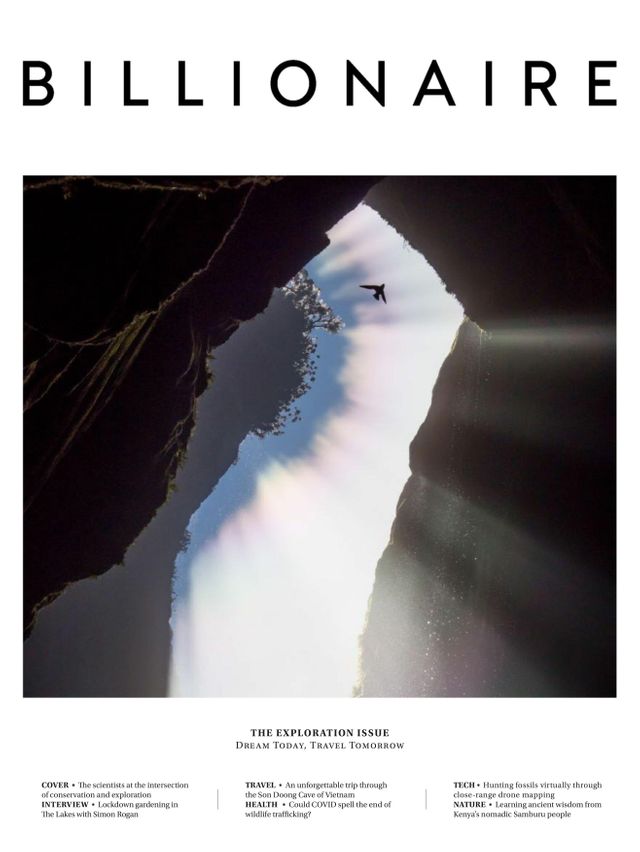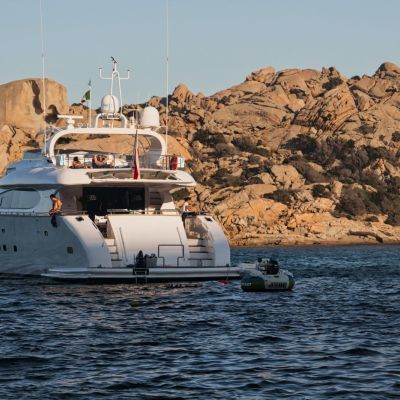Walking With Nomads
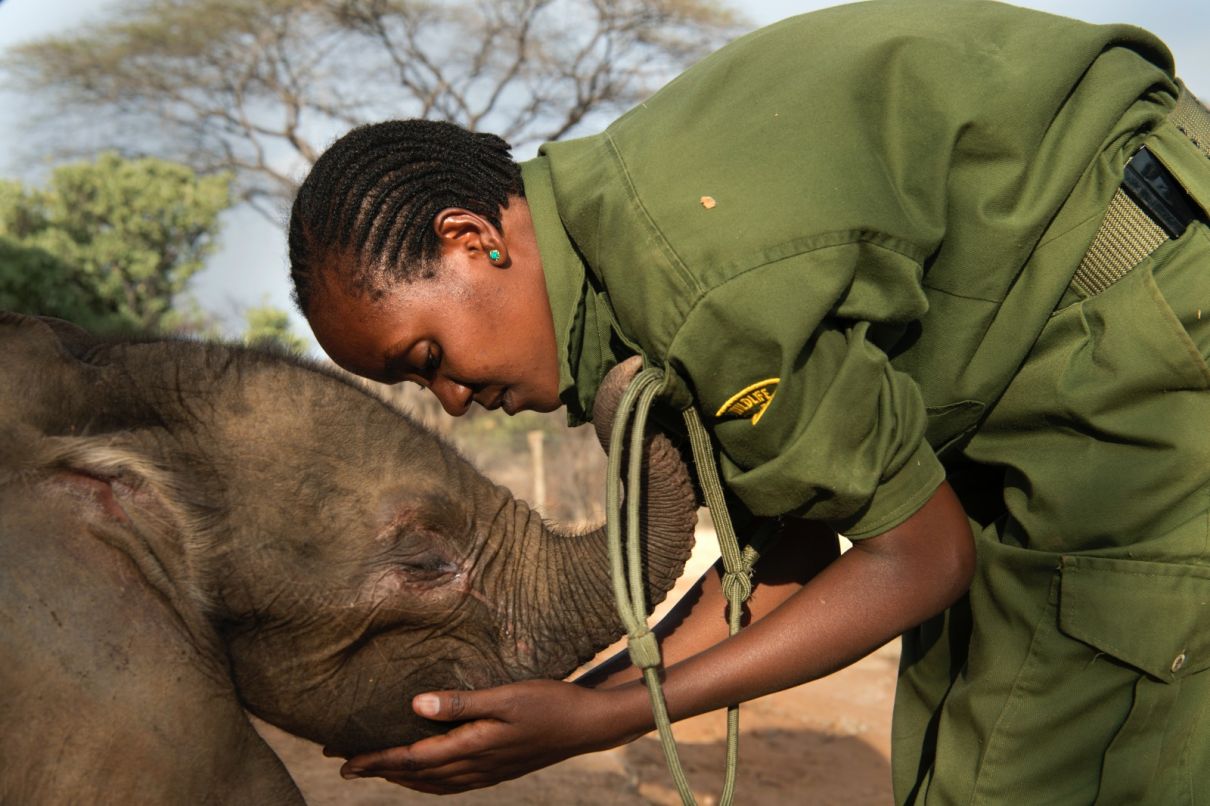
On the trail of the Samburu people of northern Kenya.
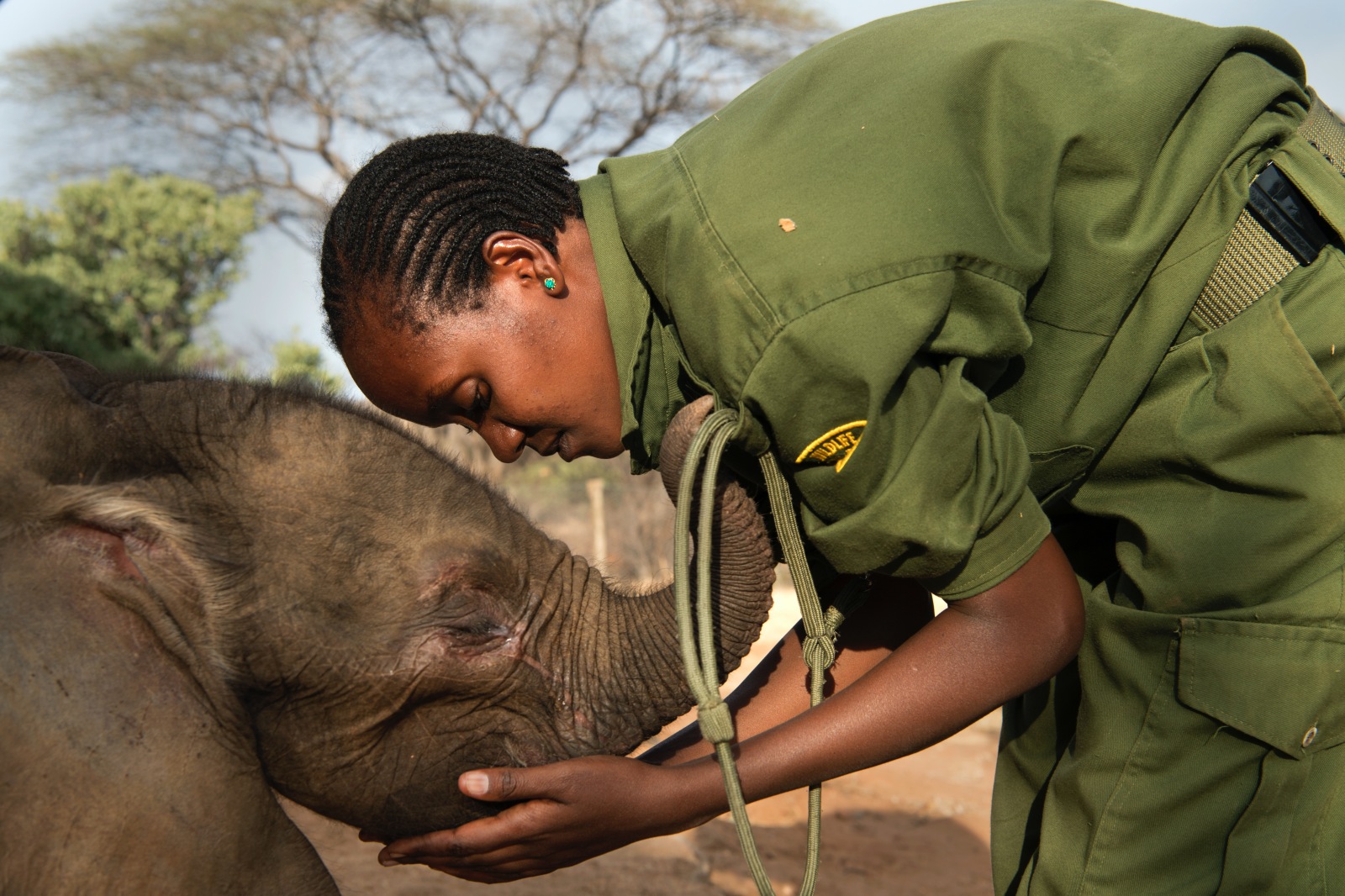
A caretaker feeding a baby elephant. © HER Planet Earth.
A century ago, up to 12 million elephants roamed the Earth. Today, there are only about 500,000 left. Despite a 1990 ban on international trade in ivory these majestic animals are alarmingly close to extinction
In October 2019, our HER Planet Earth all-female team had the great privilege of trekking 100km with Samburu warriors in the Karisia Hills of northern Kenya. The Samburu are nomadic pastoralists who have lived harmoniously with nature in this region of Kenya for centuries. Following patterns of rainfall in search of fresh pasture and water for their cattle, camels, goats and sheep, they have developed a special relationship with the environment, and this has created a biocultural landscape that aids Samburu culture and biodiversity.
During our week-long sojourn in this remote part of Kenya, we witnessed stunning landscapes and ever-changing sceneries, from dry deserts and rocky volcanic terrain, to lush green forests and meadows as we climbed higher in altitude to 2,550m above sea level. Travelling with a full safari train, made up of 28 transport camels loaded with our tents and supplies, our team walked with an armed Samburu escort of proud local warriors, trackers and rangers.
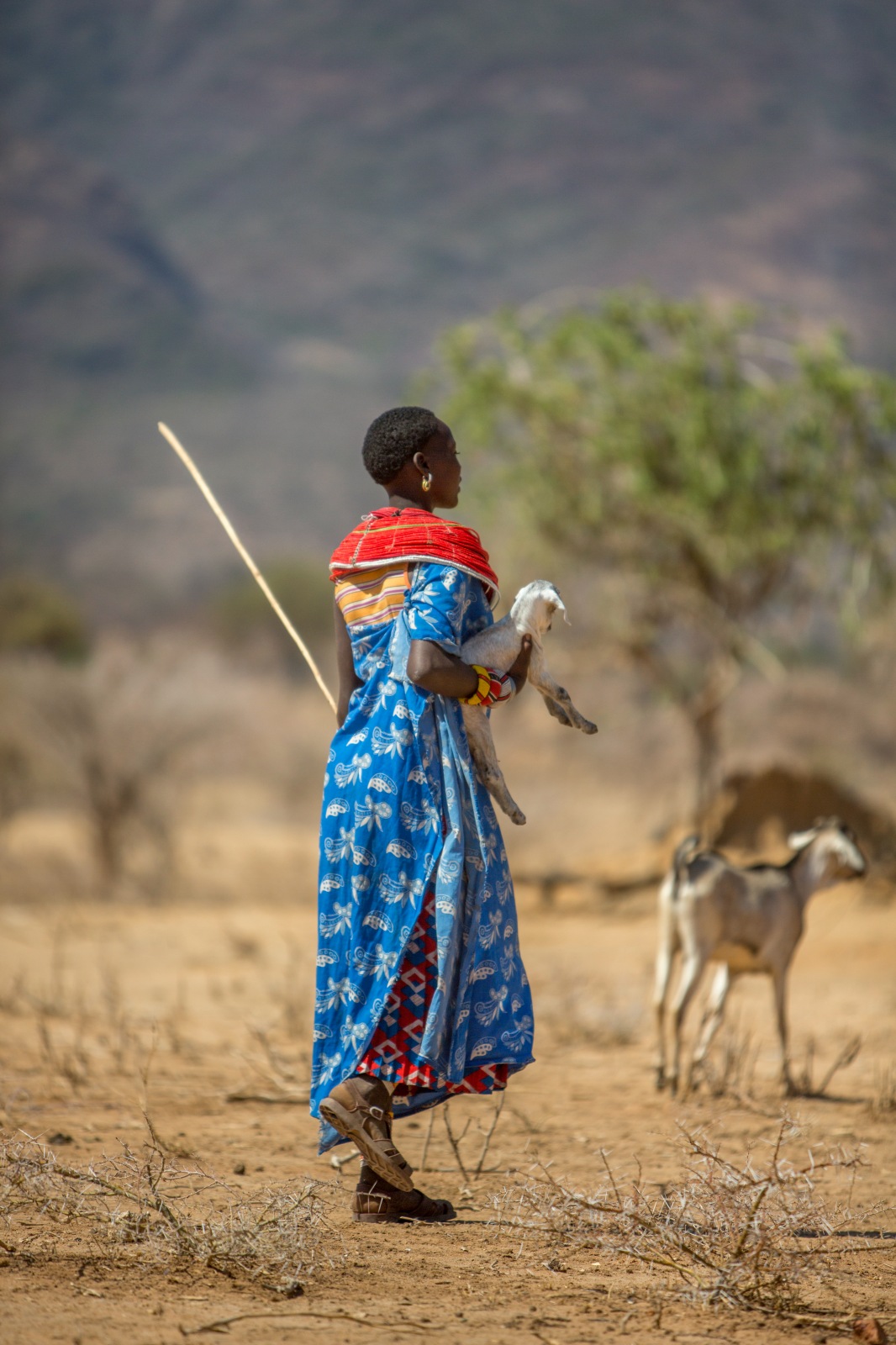
Each day we covered about 18 to 20km on foot, leaving camp just as dawn broke, and arriving at our next campsite by early afternoon. Our Samburu guides kept us safe throughout, scanning the path ahead meticulously. They were attentive to every detail and looked after us with sincere and generous hospitality.
The objective of our trek was to increase awareness of the impact of climate change in this region and raise valuable funds for Conservation International and its programmes aimed at building the resiliency of the local people of northern Kenya; women in particular, who are the hardest hit by climate change.
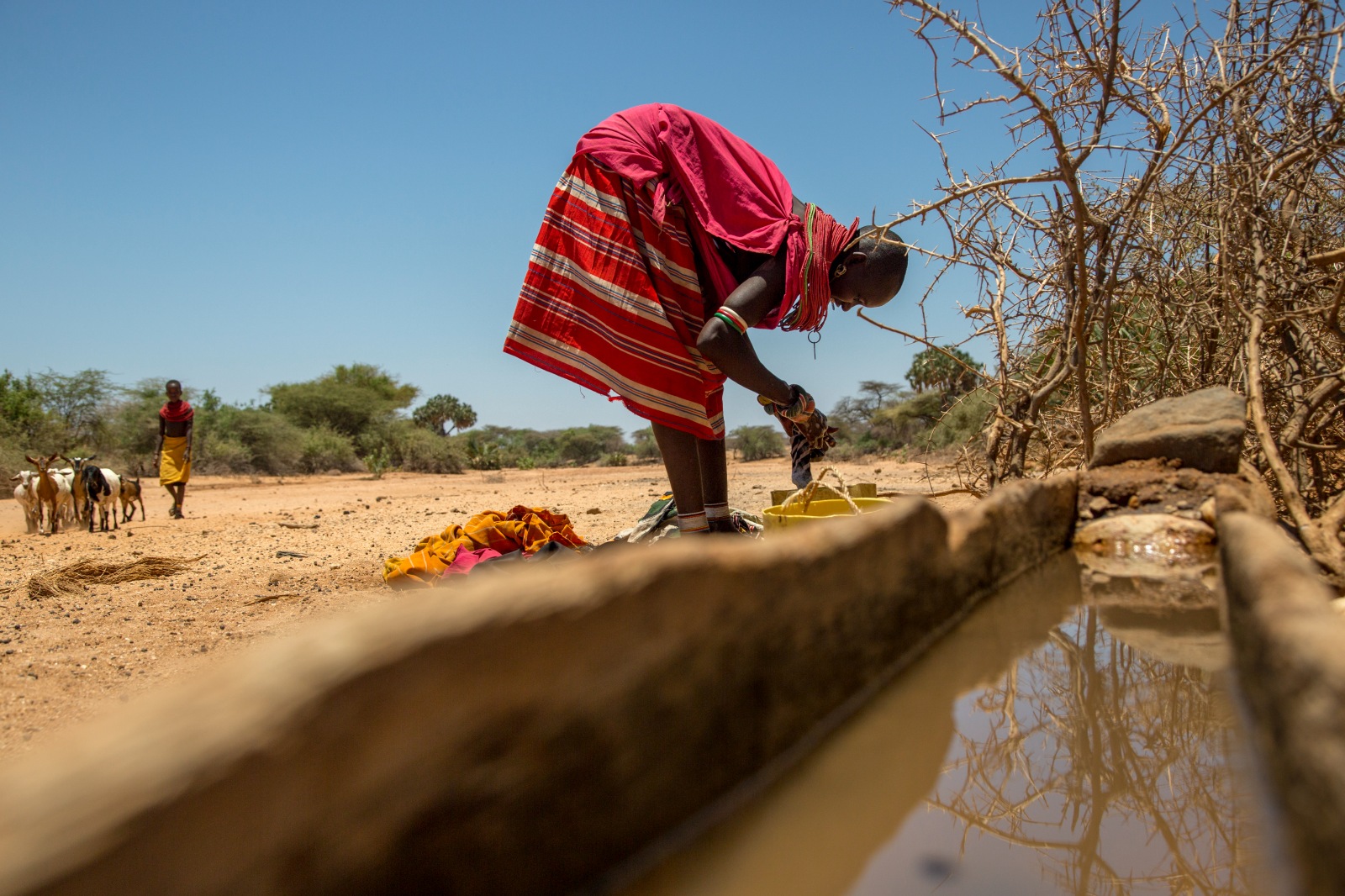
In Kenya, women are the natural custodians of the environment and the first to be affected by environmental degradation. This is because they are the ones who walk for hours looking for water, who fetch firewood and who provide food for their families. Our support, which culminated in S$145,000, was aimed at creating more livelihood opportunities for women in this area: focused on wildlife conservation.
As we journeyed with the Samburu through their territory, we learnt a great deal about their love of nature and their deep respect for elephants especially. These beautiful mammals have influenced Samburu tribal culture since the dawn of time. Elephants create paths to water and break branches that can be used for firewood, two functions that benefit the Samburu people’s survival.
As we soaked up the beauty of the region during our long days of walking, we came to hear about a local legend that tells the tale of elephants who once lived in homes and worked with the Samburu women, demonstrating that elephants are ancient relatives and therefore deserve love and respect.
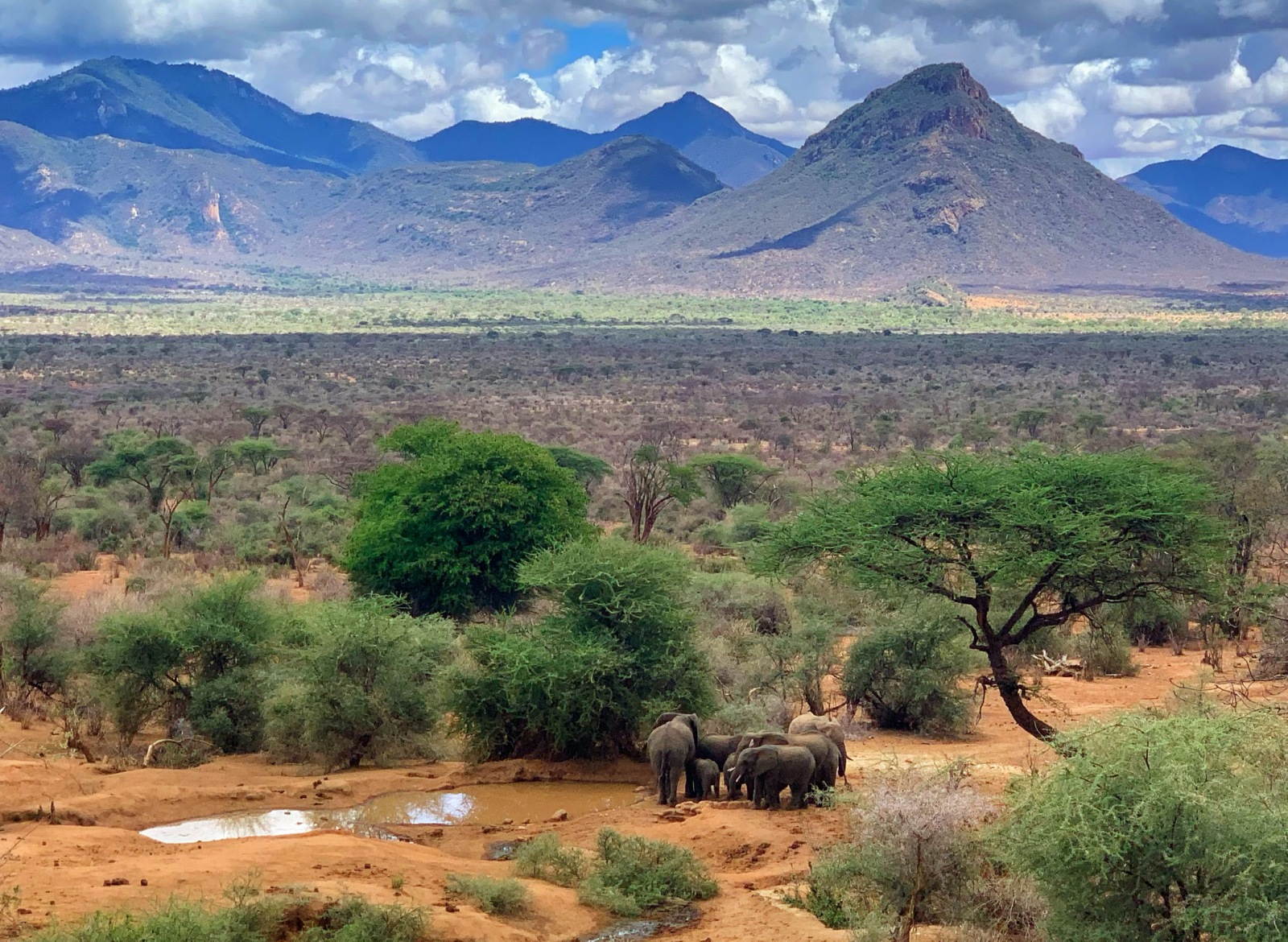
Views of the Matthews Range from Sahara camp as a herd of elephants drink by the watering hole. © HER Planet Earth
We soon also realised, however, that the Samburu way of life is being severely threatened by the impact of climate change. Droughts are leading to conflicts, human and livestock displacement, animal diseases, and food insecurity. These nomadic herders frequently dig deep holes to find water for both themselves and their livestock. They call them ‘singing wells’ because they sing to their livestock as they dig, and the cows recognise their family’s song and come down to drink. The difference between each family's song is usually clear but can be very subtle. At night, thirsty elephants seek out these wells. The adults, with great long trunks, have little problem reaching for the water, but the younger, inexperienced elephants can tumble in. If the animals can’t be pulled out, the elephants are forced to abandon their young.
More than 20 of these abandoned elephants now live at the nearby Reteti Elephant Sanctuary, the first community-owned elephant reserve in Kenya. At Reteti, baby elephants are taken care of and bottle fed, until they are big enough to be re-introduced into the wild. It’s a unique form of conservation, where the local Samburu people collectively own and manage the 3,400-acre property.
As the largest of all land mammals, African elephants play an important role in balancing natural ecosystems and part of our team’s fundraising went to support this elephant sanctuary to help it grow and develop its programme, and to employ more local women to care for these beautiful creatures.
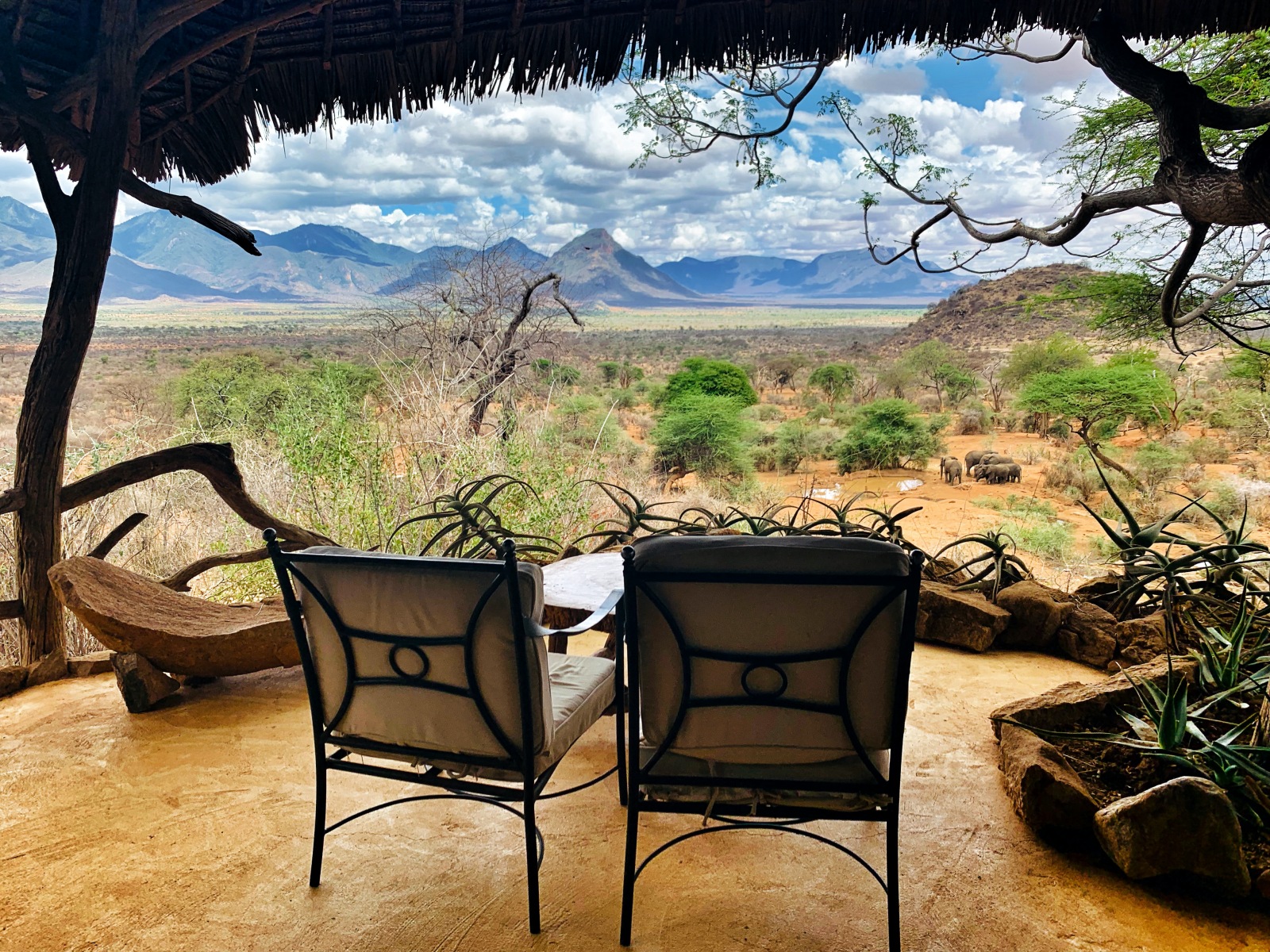
Additionally, our team’s efforts were focused on giving a voice and providing a platform for the development of sustainable enterprises and family livelihoods. The ripple effect will extend to education, health, family income and even security, peace and stability. Gender imbalance is a major factor obstructing sustainable development in Africa and poverty is a key element undermining a girl’s right to education; a cycle that reinforces a large gender gap.
One of our beneficiaries is a Conservation International Fellow, Rufo Halakhe, whom we met during our visit. Halakhe will use her fellowship to explore how women are affected by tribal clashes involving communities in her region and how women can be champions of peace through their existing cultural structures.
Another lady we met is Josephine Ikuru, a community leader and the first female peace coordinator for the Northern Rangeland Trust, a partner of Conservation International. She’s been a champion for women’s rights in Northern Kenya since her teens, defying gender norms to attend local meetings traditionally dominated by men. Ikuru gained a passion for conservation through her efforts to reform poachers, working to end both the devastation of her beloved wildlife and the poverty that has given rise to it. By the age of 22, she was elected chairperson of the Nakuprat-Gotu Conservancy, bringing together rival tribes to curb poaching and conserve the native wildlife. Throughout her career, Ikuru has successfully reformed dozens of poachers, helping convert several of them into conservationists and peace ambassadors.
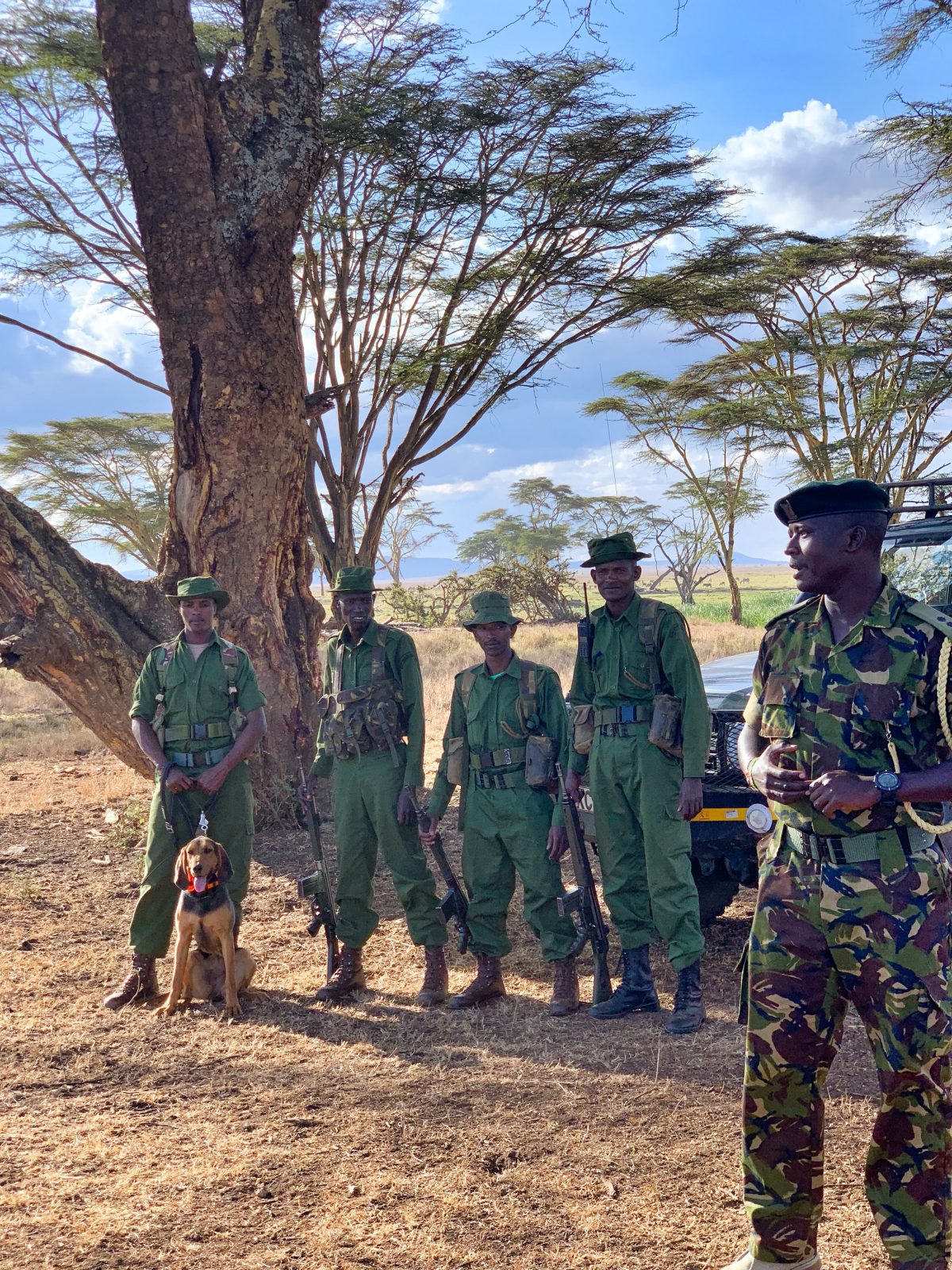
Our team spent a day with the Northern Rangelands Trust to better understand how our funds could help further develop its mobile anti-poaching unit. This group is comprised of highly trained men and women from the Kenyan National Police Reservists, who are tasked with protecting the whole area. The rangers are extremely skilled in several disciplines, including physical training, first aid, weapons handling, navigation, legal briefing, and work with a K9 dog task force, making them a unique influence for stability and safety in the community.
Their efforts since their inception have contributed significantly to a reduction in the illegal killing of several endangered species in this part of Kenya. The local elephant population has bounced back as a result, from an all-time low, since the introduction of this team. The success and continuation of this ranger unit provides an example to other communities of what can be achieved with the right resources and training.
Overall, our time in Kenya was a truly enriching and insightful experience. This magnificent country of epic landforms stirred in us a deep longing for the rest of the African continent. And when you depart, as the aircraft lifts, you feel that more than leaving a continent, you are leaving a state of mind. Our hearts are full from the staggering beauty of the local people whom we came to know during our journey. They brought soul and colour to the Earth. We will never forget traversing vast multicoloured grasslands peppered with immense herds of wildlife.
This article originally appeared in Billionaire's Exploration Issue, Summer 2020. To subscribe contact

